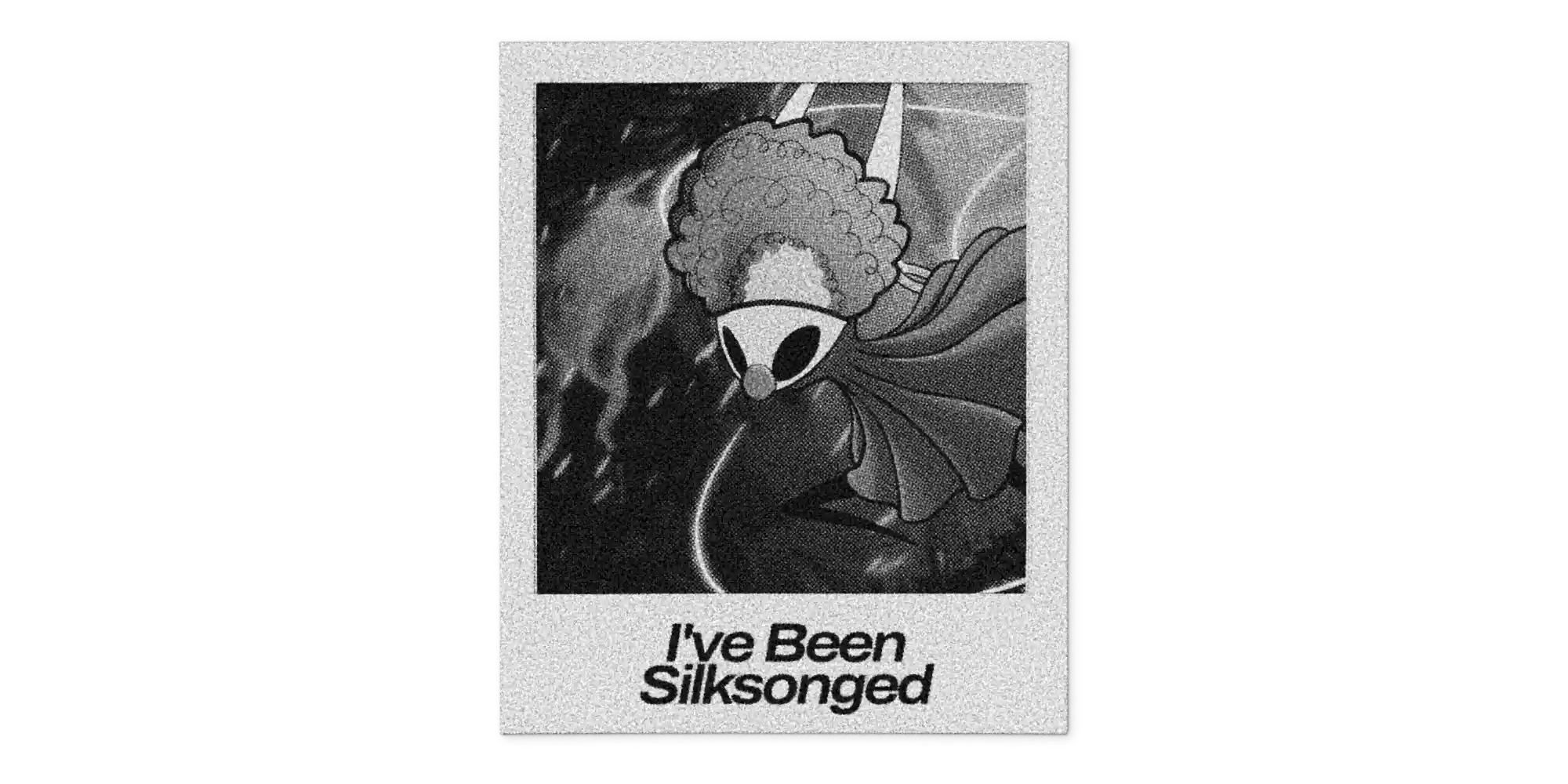
| “It's time to sing a silk song.”
– John Hornet, protagonist of Silksong
I can't believe that, six years after Silksong was first announced, I finally have it in my hands.
Countless video game conferences, dozens of Nintendo Directs with the clown wig firmly in place over the years, waiting for something that didn't seem like it was ever going to happen. And finally, it's time to hang it up.
On September 4, 2025, Silksong was finally released.
So, like the game, I'll talk about Silksong in acts.
Act I - The Outsider
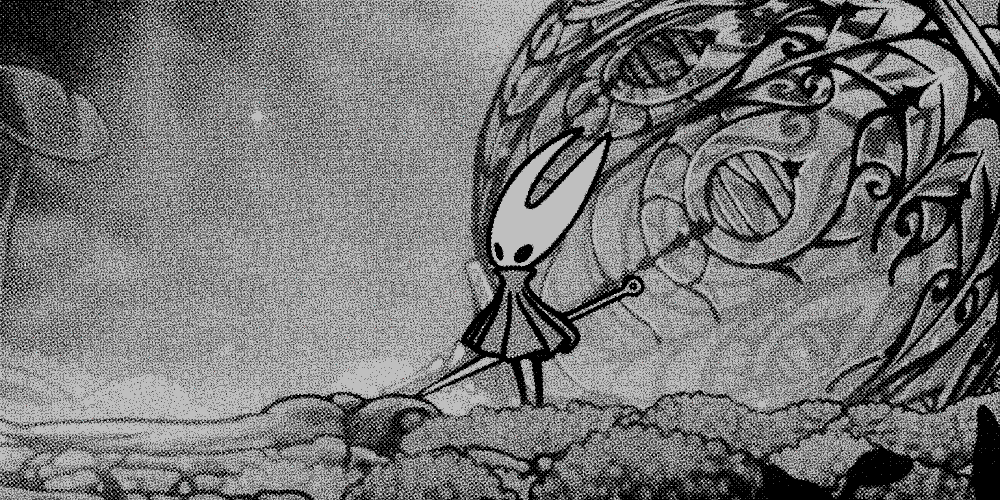
The first few hours of a video game are crucial. You want to attract as many people as possible so they stay, explore, and get hooked on the story you want to tell.
And Team Cherry has created one of the simplest and most powerful game introductions possible.
It doesn't do anything particularly special, but you can tell how they do it. And they shine precisely in what they do best: creating a rich, vibrant, and coherent world.
And I think they've squeezed the most out of it here, not only with large areas and a unique progression that goes in crescendo the more you explore. But they've also abandoned the main hub that was Foulmouth in favor of several areas of tranquility and calm that serve very well the improved scale that the game offers us only in this first act.
I also love how they've approached movement.
Not only in terms of tools, of which there are many at our disposal to help us navigate different combat situations, but also in a detail that, for me, is key: that second when you “float.”
That detail gives me the space I need to calculate my next move, and I end up entering “the zone” in a very similar way to how Bloodborne did it with its drive for aggression. Here, offensive behavior also has its rewards.
Act II - The Struggle
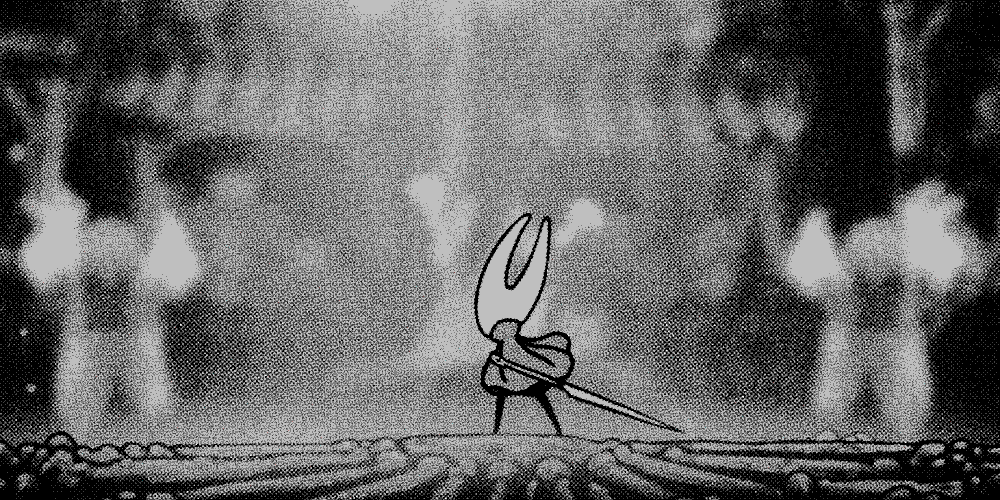
It's no surprise that Silksong has had its share of controversy, and one that has been with us for a long time: difficulty.
And, honestly, Silksong isn't difficult. It's challenging.
The game gives you all the tools you need to succeed in every situation, whether in combat or with its impressive platforming. Mind you, this doesn't mean I don't want the game to be accessible, but I think it's something that should come separately rather than being integrated into the core of the game. Give players the option to disable double damage from common enemies/platforming, or create difficulty modes.
Resurrecting the difficulty debate seems almost like a meme every time a game of this style is released, but the approach has been the same ever since: learn, adapt, and emerge victorious. And this, for better or worse, is not compatible with everyone.
Life is too short to get hung up on a single game; there are absolute wonders beyond it, and I would like to take this opportunity to recommend some absolutely amazing games such as 1000xRESIST, Lunacid, or, within the Metroidvania genre and my personal favorite, Castlevania: Aria of Sorrow.
It's a game that plays a lot with the desire to set seemingly impossible challenges and the dopamine rush you get when you overcome them. And, of course, it tests your tolerance for frustration. And it shows.
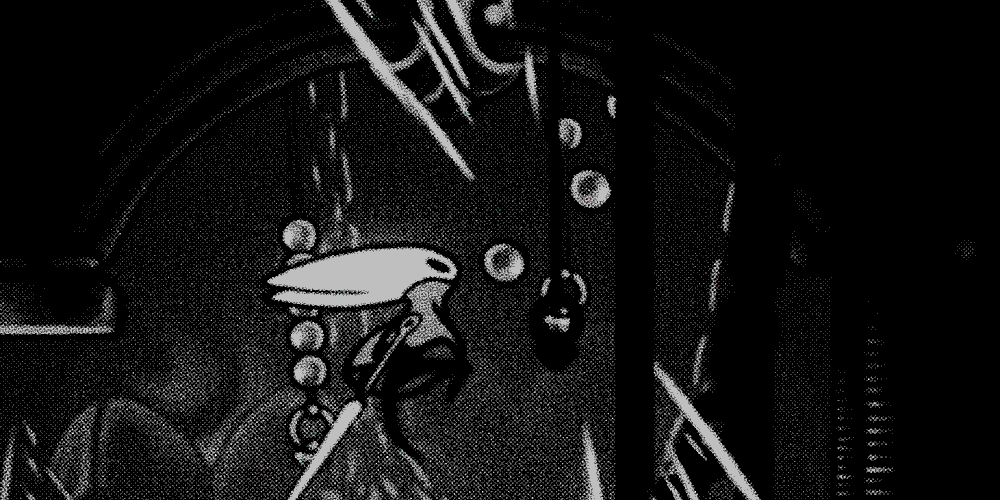
I think another system that I find a little excessive is the economy.
There is a lot of monetary trade and few sources to earn enough to buy everything. I understand, and it seems consistent within the world of Pharloom, the distinction between “bug” enemies and “pilgrim” enemies linked by the silk. But, in the latter case, the reward for defeating them is very low even with the tool to increase earnings, and it requires a lot of farming to be able to buy everything.
And it's tedious, boring, and repetitive farming.
This wasn't too much of a problem in Hollow Knight because the bosses had their rewards, but here that reward is simply being able to advance. No rosaries or fragments.
Act III - The Radiant City
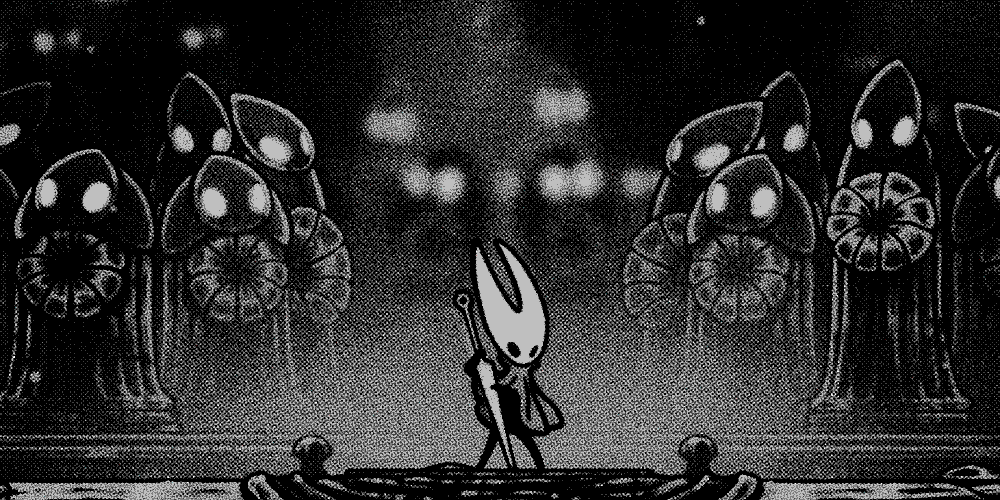
Once the initial hype had died down, what remained inside me was a feeling of searching, of wanting to know more about Pharloom.
So my goal throughout this act has been to explore. To discover as much as possible until the game begs me to do the main mission.
This sounds great at first, but there's one thing I hadn't taken into account: Bilewater. I think, without fear of contradiction, it's by far the worst area to face in Silksong.
And this is achieved by something that is not unique to this area.
One of the negative points I see in Silksong is its eagerness to lock you in a small space to face waves of mobs. This culminates in a certain boss in a certain area that ONLY appears if you first go through five waves of this kind. All this, combined with Hornet's low health, is a huge cry of “git gud,” where the game is practically pushing you to have a mindset similar to those who enjoy “no hit” challenges. But right in THAT area, it seems too much even for me, who enjoys a challenge like no other.
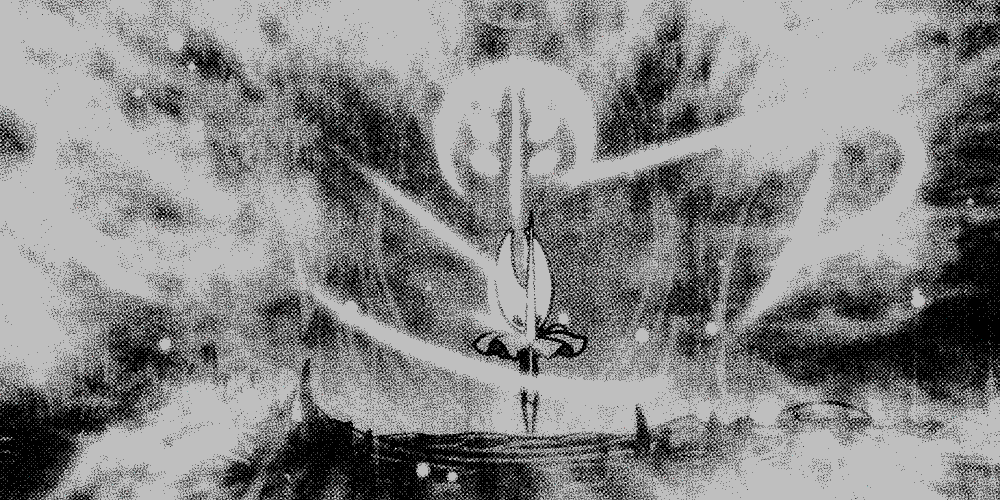
I think that, at this point in the game, its strongest aspect is the combat.
It's not just that Hornet responds brilliantly to everything I want to do, but, as I mentioned in Act I, it has those seconds of respite in the air that make it feel fresh and give you space to chain actions together.
The huge variety of tools that are at my disposal is what makes also a difference.
I'm having SO much fun going head-to-head with the bosses, and if something doesn't work, change Hornet's setup with tools that complement the enemy's movements. My favorite is the saw, but unfortunately it's only for ground enemies. Anyway, it's true that I hardly used them in the first half of the game because I wasn't used to the controls, but once I got the hang of it, it was just a matter of clicking.
With increasingly tough enemies, these tools are essential for dealing damage and taking them down.
Act IV - What it means
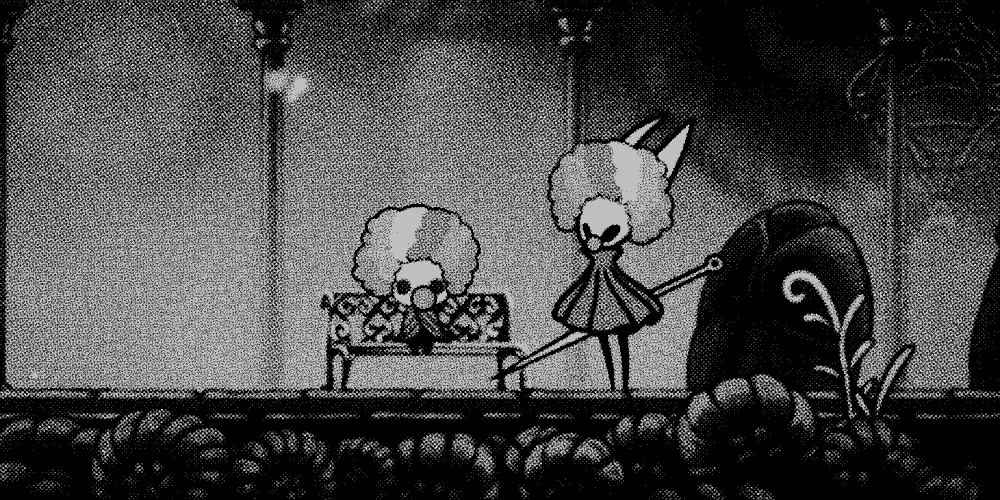
This whole experience has been cathartic. But there's a reason for it that goes beyond the game itself. It's been everything that has surrounded it over these years of sporadic news.
As if it were an intermittent toxic relationship, I think that much of what has made Silksong the giant it has been all this time is the mystery that has surrounded it. Although this was not the intention of its developers, it has created a strange relationship between the public and the game, mythologizing it even before it was released.
Rumors of a possible cancellation, alleged problems when the pandemic hit around the world, and countless unexplained delays that even giants like Microsoft have suffered firsthand, assuring us back in 2022 that Silksong would indeed be released that year (before, once again, that certainty disappeared into the virtual ether).
And, honestly, it was this past year that, for some reason, I had regained interest in Silksong and had been waiting for it at every conference I watched. To my surprise, it was briefly shown in the Nintendo Direct for Switch 2. And to my even greater surprise, Team Cherry announced the date in a separate trailer.
I think I have rarely seen a sociocultural phenomenon like this (within the world of video games).
Act V - A-void-ing the inevitable

Not gonna lie, I've avoided finishing Silksong as much as possible.
Like the inhabitants of Bellhart, I've been entangled in the silk threads of its world, inhabitants, and challenges.
Completing a game 100% is something I never force myself to do; it has to come naturally out of pure interest and curiosity to learn more about the world surrounding the adventure.
Sometimes these 100% completions are just extra challenges, but I'm not usually interested in those. Here, this challenge (apart from the achievements) is to explore every nook and cranny of the game, get almost everything it has to offer, and delve deeper into what the main story only touches on. And those are the ones that appeal to me the most.
Yep, I’m completely aware that there is a Steel Soul Mode on Silksong too. I’m completely aware.
I've found myself spending several days disconnecting from the mindset I sometimes have with games that challenge me to find the “most optimal route” and simply getting lost in their forests, caves, and structures to extend it for another 5 minutes.
But everything has an end, and in this case, one that I would describe as CINEMA.
